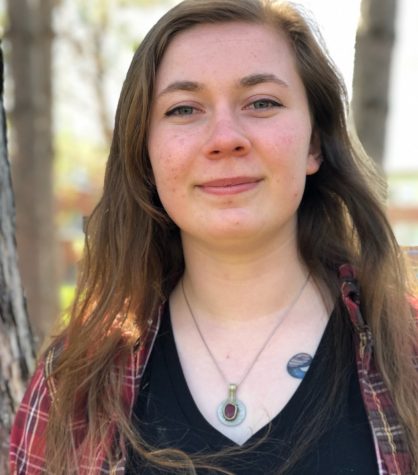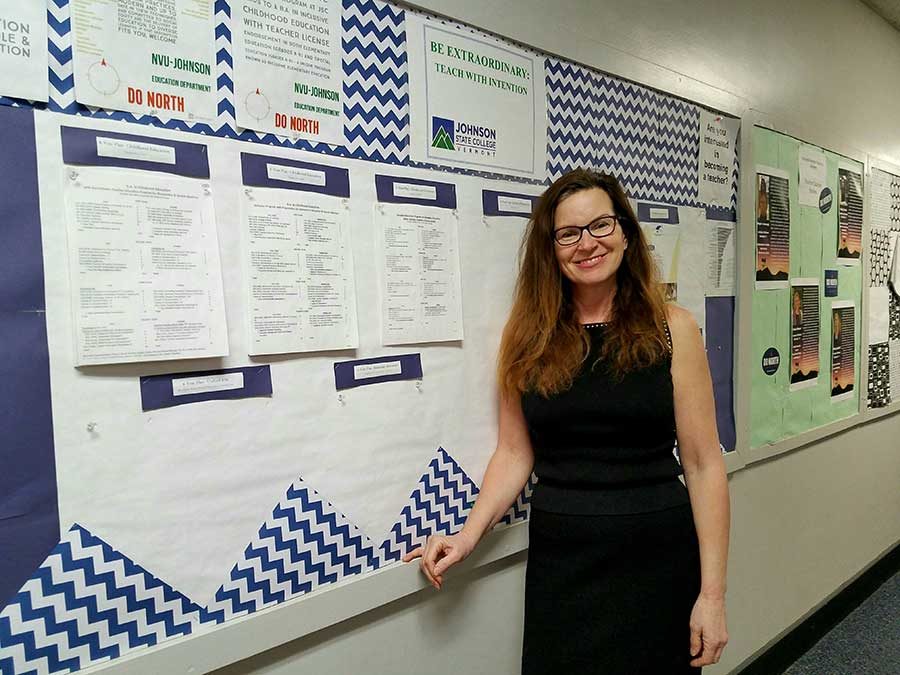Anthropologist joins Behavioral Sciences Dept.
Professor of Anthropology and Global Studies Janet Bennion
Professor of Anthropology and Golbal studies Janet Bennion has joined the NVU-Johnson full-time faculty after transferring to Johnson from the Lyndon campus at the beginning of the spring semester.
Bennion’s transfer comes at an opportune moment considering NVU-J had been lacking a full-time anthropologist this year. She hopes to be a resource and expand the areas of studies to cater to a wider variety of interests.
She started her career as a journalist and focused on human interest stories, but realized that she craved more depth to her research, “It was too quick,” she says. “It was too short to get the full picture of why people behave the way they do. So, I decided to go into anthropology to figure out humans.”
Something that she’s hoping to bring back to the department is a Native American Cultures course, which is a specialty of hers. She’s taught Native American Ethnography at Lyndon in the past, and she was a sun dancer as well as married to a medicine man for years. She also looks forward to being available for advising and leadership for anyone thinking of further pursuing these studies. She has already started looking into what classes students would be interested in taking next year to expand the available curriculum.
Bennion’s work is well known in the anthropology community, which she says is something that she’s looking forward to sharing with her students. She has written five ethnographies, as well as dozens of chapters in books and articles, and has been a keynote speaker at many conferences on the topic of polygamy and polyamory. “All of the material and the research that has given me a claim in the world I can bring into the class and talk about my research and the research process,” she says.
Currently, she is studying polyamory, or the practice of having more than one open relationship at a time, in Paris and will continue her studies there on breaks while she’s teaching. Her studies focus on the differences and similarities between polyamory there as opposed to in the United States and in Canada. She will be putting that research together with a colleague of hers to be published.
She has been drawn to pursuing these studies throughout her life, being raised Mormon and being the product of polygamy herself. “I was drawn to studying these offshoot groups that were offshoot Mormons, still practicing polygamy, because it’s some of the most complex relationships that I’ve ever seen,” she explains.
One of her more well-known studies was focused on a group of offshoot fundamentalist Mormons, who she got to study on and off for three years through very particular fortune. They were originally not very open to the idea of being observed, but upon seeing her pregnant with long hair and conservative dress with a background of similar culture, they let her into their society. However, being so similar, she also had to be careful.
“Being away from my family and being away from my church was kind of making me even more vulnerable,” she said. Fieldwork is rough and I was about 28, and I felt that there was a part of me that was going native. And so I had to pull back. It was really challenging. I mean, there was a lot of pressure for me to actually join the group, but I was a researcher and I maintained that.”
As far as her more recent polyamory analysis, she is using autoethnography, which includes self-reflection to study something that she has also been actively practicing for the last two years. Now she is able to compare her own story with the stories of others to gain deeper and more diverse insights to the polyamorous way of life. “This is exciting as a process to actually be looking at this reflexively,” she says.
She was planning on doing a broader study of polyamory in Europe on her sabbatical, but she decided to defer it, then ultimately decided on staying and teaching while doing research over breaks.
One of her favorite field work sessions was to Africa to visit the Waata tribe in Kenya and donate supplies to their school and clinic with a group of students. They were adopted into the tribe and lived alongside them in the bush, and learned about their culture and way of life first hand.
Bennion intends to take students on more trips soon, with a trip to Martinique in the planning stages. She encourages anyone who may want to go to contact her for more information once plans are solidified.

Sophomore, Journalism
Grew up in Salisbury, NH
Fall 2018 - Present
The closest I have come to fame so far is once, at a Weird Al concert, he went...



